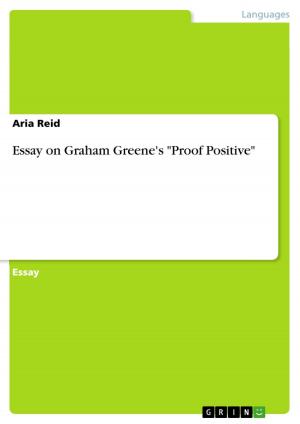Debating the Principles that Govern Revolutions
A Review of Kamrava's 'Revolution Revisited: The Structuralist-Voluntarist Debate'
Nonfiction, History| Author: | Sean Ong | ISBN: | 9783656300250 |
| Publisher: | GRIN Publishing | Publication: | October 31, 2012 |
| Imprint: | GRIN Publishing | Language: | English |
| Author: | Sean Ong |
| ISBN: | 9783656300250 |
| Publisher: | GRIN Publishing |
| Publication: | October 31, 2012 |
| Imprint: | GRIN Publishing |
| Language: | English |
Scientific Essay from the year 2012 in the subject History - Basics, grade: 42/50, , language: English, abstract: Revolutions have always remained the fascination of many academics. Studied and exploited in a wide variety of forms for an even larger range of reasons, by both dictators, historians and sociologists alike, the framework through which revolutions are analysed and broken down, as well as the principles of revolution, has evolved over the years as a greater number of 'revolutions' began to occur, with increasingly divergent characteristics. Much debate has ensued, largely focused on the different types of revolutions, the role of structure versus human agency, how 'revolutionary success' can be measured and defined, and whether or not revolutions must solely be studied in context and hence greater comparative and generalising statements cannot be effectively drawn from the study of revolutions.
Scientific Essay from the year 2012 in the subject History - Basics, grade: 42/50, , language: English, abstract: Revolutions have always remained the fascination of many academics. Studied and exploited in a wide variety of forms for an even larger range of reasons, by both dictators, historians and sociologists alike, the framework through which revolutions are analysed and broken down, as well as the principles of revolution, has evolved over the years as a greater number of 'revolutions' began to occur, with increasingly divergent characteristics. Much debate has ensued, largely focused on the different types of revolutions, the role of structure versus human agency, how 'revolutionary success' can be measured and defined, and whether or not revolutions must solely be studied in context and hence greater comparative and generalising statements cannot be effectively drawn from the study of revolutions.















